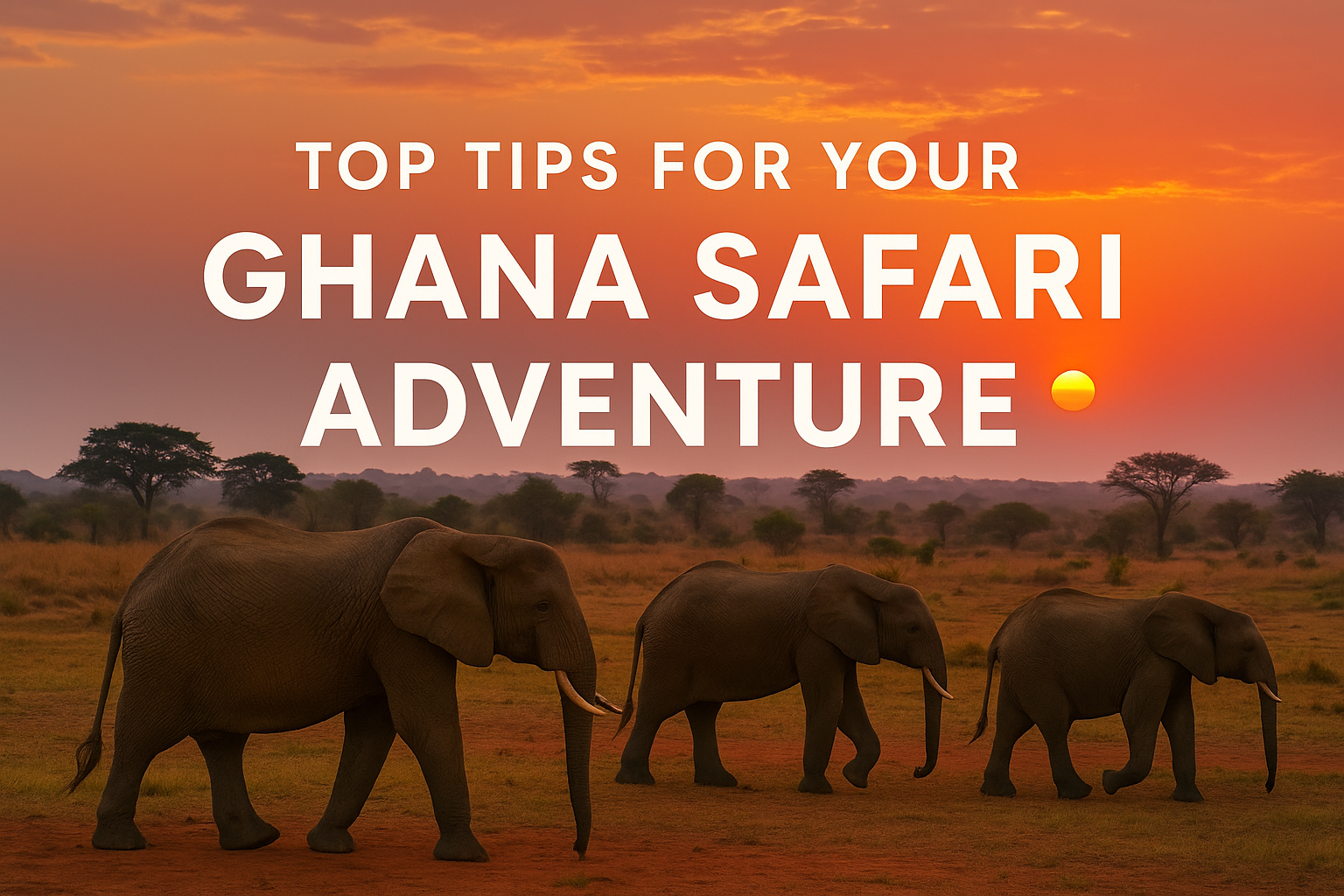Top Tips for Your Ghana Safari Adventure
From Mole’s elephants to Kakum’s canopy walk — practical, locally-tested advice to help you plan, pack, and enjoy a safe, comfortable and unforgettable Ghana safari.
Estimated read: 6 min · Updated:
Essential Tips Before You Go
1. Time your trip: dry season is easiest
Plan for the dry season (roughly November–March) for better wildlife viewing and easier road access. Expect warmer, drier days and cooler nights in the north.
2. Pack smart — layers & insect protection
Lightweight layers, a good sunhat, sturdy walking shoes, and long-sleeved shirts for evenings. Bring insect repellent with DEET and a treated mosquito net if you’re staying in budget lodges.
3. Respect wildlife & local guides
Keep a safe distance, don’t feed animals, and listen to your guide — they know animal behaviour and safe viewing spots.
4. Vaccinations & health
Check required and recommended vaccines (yellow fever certificate often required on entry), bring basic meds, and drink bottled water.
5. Local customs & cash
Wear modest clothing in rural communities, ask before photographing people, and carry some Ghana cedi for markets and tips — ATMs can be scarce outside major towns.
6. Best camera & binocular tips
Bring a telephoto lens (200–400mm ideal) or a quality compact with zoom. Binoculars (8×42) will make wildlife spotting much more rewarding.
7. Lodging & transport
Book accommodation in or near national parks in advance, and use reputable local operators for transfers; roads can be rough — 4×4 recommended for some routes.
8. Responsible travel tips
Support community-run lodges, avoid single-use plastics, and follow ‘leave no trace’ rules to protect Ghana’s ecosystems.


Comment (0)